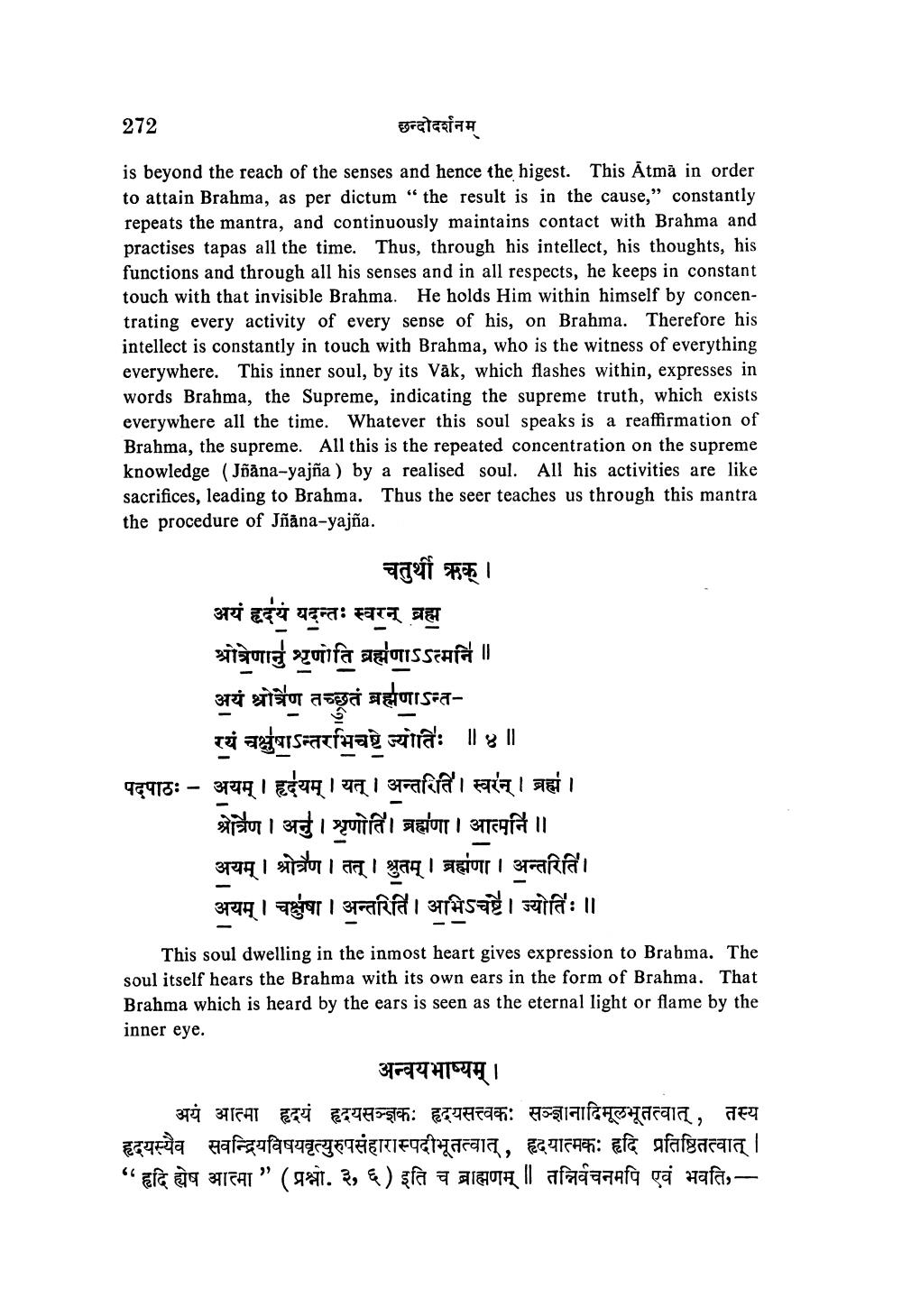________________
272
छन्दोदर्शनम
is beyond the reach of the senses and hence the higest. This Ātmā in order to attain Brahma, as per dictum “ the result is in the cause," constantly repeats the mantra, and continuously maintains contact with Brahma and practises tapas all the time. Thus, through his intellect, his thoughts, his functions and through all his senses and in all respects, he keeps in constant touch with that invisible Brahma. He holds Him within himself by concentrating every activity of every sense of his, on Brahma. Therefore his intellect is constantly in touch with Brahma, who is the witness of everything everywhere. This inner soul, by its Vak, which flashes within, expresses in words Brahma, the Supreme, indicating the supreme truth, which exists everywhere all the time. Whatever this soul speaks is a reaffirmation of Brahma, the supreme. All this is the repeated concentration on the supreme knowledge (Jñana-yajña ) by a realised soul. All his activities are like sacrifices, leading to Brahma. Thus the seer teaches us through this mantra the procedure of Jñana-yajña.
चतुर्थी ऋक् । अयं हृदयं यदन्तः स्वरन् ब्रह्म श्रोत्रेणानु शृणोति ब्रह्मणाऽऽत्मनि ॥ अयं श्रोत्रेण तच्छ्रुतं ब्रह्मणाऽन्त
रयं चक्षुषाऽन्तरभिचष्टे ज्योतिः ॥ ४ ॥ पदपाठः - अयम् । हृदयम् । यत् । अन्तरिति । स्वरन् । ब्रह्म ।
श्रोत्रेण । अनु । शृणोति। ब्रह्मणा । आत्मनि ॥ अयम् । श्रोत्रैण । तत् । श्रुतम् । ब्रह्मणा । अन्तरिति । अयम् । चक्षुषा । अन्तरिति । अभिऽचष्टे। ज्योतिः॥
This soul dwelling in the inmost heart gives expression to Brabma. The soul itself hears the Brahma with its own ears in the form of Brahma. That Brahma which is heard by the ears is seen as the eternal light or flame by the inner eye.
अन्वयभाष्यम्। अयं आत्मा हृदयं हृदयसञ्ज्ञकः हृदयसत्त्वकः सज्ञानादिमूलभूतत्वात् , तस्य हृदयस्यैव सवन्द्रियविषयवृत्युरुपसंहारास्पदीभूतत्वात् , हृदयात्मकः हृदि प्रतिष्ठितत्वात् | " हृदि ह्येष आत्मा" (प्रश्नो. ३, ६) इति च ब्राह्मणम् || तन्निर्वचनमपि एवं भवति,




